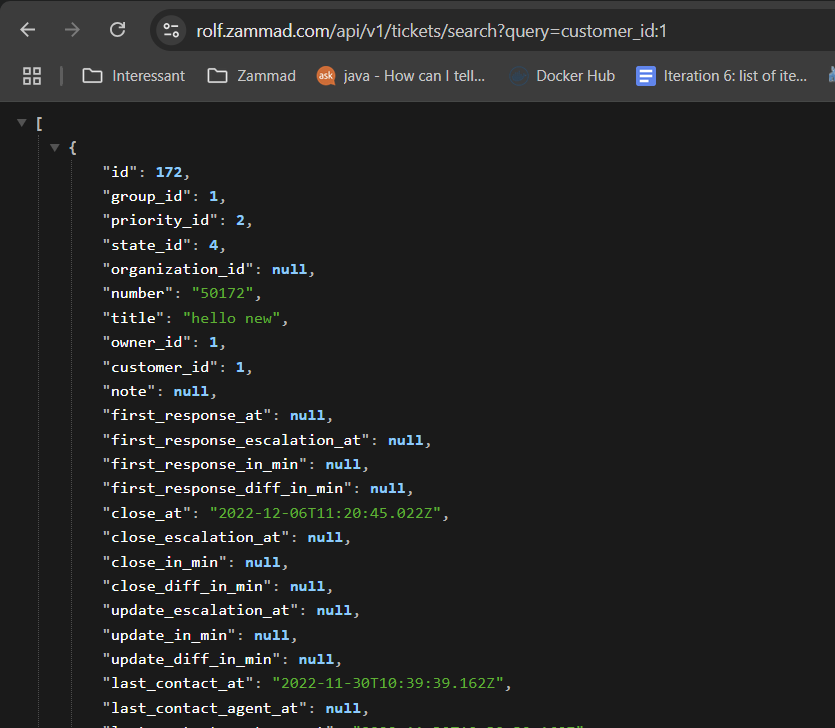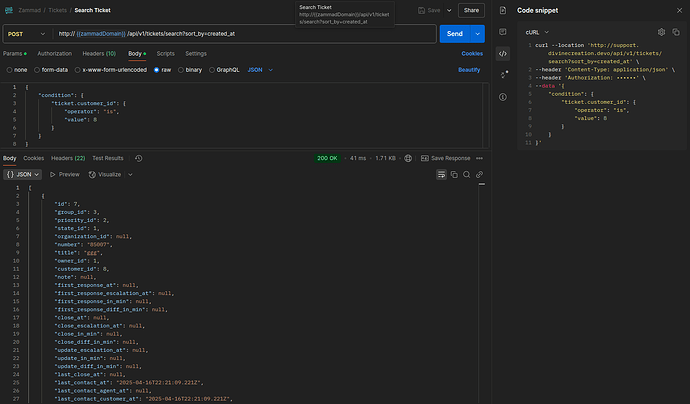This is kind of a question but I figured this would most likely fall under a feature request if my understanding is right, so I’m writing it as such.
A few months ago I started developing a custom support solution where I would build into my ministry’s websites a user interface for support that would direct all those to Zammad via the API where people would manage the support requests. That was on Zammad 6.4.X I believe.
Just about 1-2 weeks ago I was ready to go live, and it looks a new version, 6.5, had been released, and the default install using Portainer automatically used this new version. So, I just figured I might as well use the latest version and went with it.
After figuring out how to fix some configuration and websocket issues that I did not have before, I attempted to use by application to find that the search endpoints have changed considerably, as well as the API documentation. Before I was using GET requests for search with query strings like ?query=customer_id:123 but now it looks like I need to make a POST request and create a query condition using JSON in the request body.
So there’s really two major questions I’m trying to figure out here (1) is my understanding right? Looking at the site’s changelog it does seem like I am. (2) Are there plans to update the SDKs / API clients (like this PHP one I am using) and if so is there an expected timeframe by which those will be done.
Title: Updates to SDKs to reflect changes in Zammad API
-
What is your original issue/pain point you want to solve?
I’m trying to figure out if I will have to re-code my custom solution to connect to the Zammad API or if I’ll be able to use the existing PHP SDK. -
Which are one or two concrete situations where this problem hurts the most?
N/A -
Why is it not solvable with the Zammad standard?
It can be, just might be some time. -
What is your expectation/what do you want to achieve?
I’m trying to figure out if the SDKs will be updated and a timeframe.


